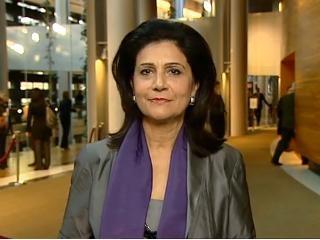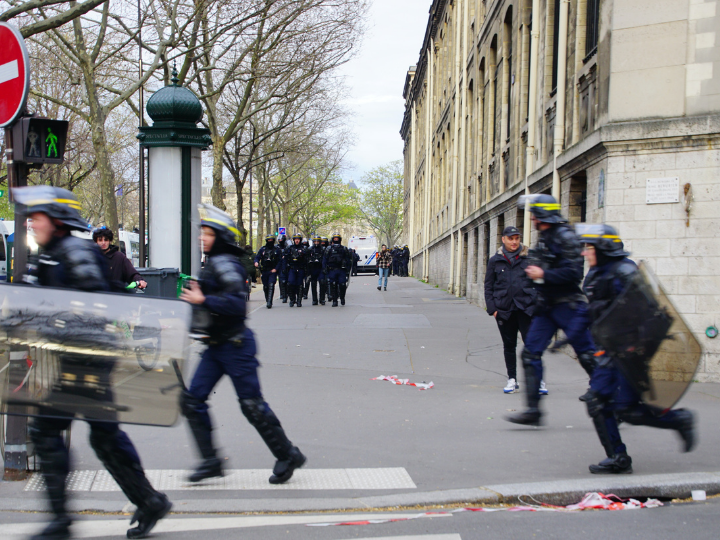by
Rodi Kratsa*
It is extremely important and inspiring that the Athens Democracy Forum: Enhancing Society through Better Governance was organised in Athens, democracy’s birthplace. It is an excellent opportunity to reflect what the testament of values of ancient Greece means for today’s society through the framework of the historic development and the modern challenges.
It has been more than two thousand five hundred years since the birth of the first democracy in Athens and the world is still talking about it. This is because democracy is not something static. It is intertwined with the advancement of the homo as a political being, according to Plato, and the advancement of the society that it forms.
There is no ideal or uniform system of governance. Certainly though, democracy is the highest and noblest form of organizing the human community. Its advantage is universally recognized and it constitutes an honest or a pretext goal for all countries who want to be accepted into the international community who aspirate for progress. All universal values, freedom, peace, diversity, inclusivity and equity, are recognized in the name of democracy.
This is why these very complex issues were in the heart of the Athens Forum. It is important that these subjects are discussed within the framework of an international forum because within our interconnected world, the respect of those values in the name of democracy needs the mutual understanding of countries and their citizens and their collective responsibility.
Democracy is not only the institutions or the electoral procedures. The key and very important element is to identify the conditions that are mandatory for democracy to function. In a democracy, the people themselves decide their luck and destiny, but to be able to make the proper and informed decisions for their future, it is mandatory that there be a calm political and social climate. Fanaticism and intensity damage and hamper the solution even of the easier problems. It makes the citizen incapable of thinking and coexisting.
Besides being serene, each citizen needs to be educated to understand the complicated circumstances and challenges of the governance of their country in the modern world so that he may be able to use his vote to choose the most suitable to rule and not become a victim of demagoguery. The crucial political and economic developments in Greece reflect these serious concerns for the democratic governance of our country.
The responsibility and the trust of the citizens and their rulers is the basic meaning for democracy. Aristotle said this: “The virtue of a citizen is the ability to be a ruler as well as to be ruled over well.”
The state can protect the lives of its citizens and their property, as well as secure the conditions for justice, equality, information and education. The citizen, on the other hand, with his actions, is responsible for his freedom, which is intertwined with the respect of the freedom of others.
Democracy requires, of course, responsible leaders who, not only in power but in the entire political system, respect for the role of the institutions, respect the transparency and the public control as a basic weapon against the abuse of power, and have the courage to speak the truth to the people and to disregard the potential political cost for the benefit of the common interest.
While democracy is a better system than any other options, its weaknesses should trouble us. Even in the most advanced democratic countries the citizens are not always predominant. There are cases where decisions are influenced by powerful centers (economic or media) while phenomenon of corruption are, of course on different levels, meet everywhere. These pathogenesis dissociate the citizens from the common interest, the political participation and the trust of the democratic system. The low percentages from the political and electoral participation are a dangerous consequence.
The power of democracy though is the civic intervention, the change and the development. This is also our power and responsibility.
This discussion, which has taken place in Athens, is very important during this time of great challenge for both the “democratically mature” countries and those that require a successful transitional phase toward democracy. We should take under great consideration that the biggest fortification against religious and every other form of fundamentalism is the strength of democracy, which is what the extremes are hostile toward. There should not exist a delay in the process of democratization and the respect of human rights based on different “excuses”, cultural stereotypes or ideologies. New challenges exist as well for the democratic governance at an international level. In the European Union our countries live in this constant process, attempting to function as a democracy by assigning power to a supranational system.
Certainly the discussions for democracy will continue, we will follow them and participate with great interest and motivation. The Institute for Democracy Konstantinos Karamanlis is dedicated to the research on these challenges in our country, in Europe and in the international level as well as the promotion of democracy as the unsurpassed eternal means for peace, justice and prosperity.
*
Rodi Kratsa is President of the Institute for Democracy Konstantinos Karamanlis. She was Member of the European Parliament (1999-2014) and Vice President of the European Parliament (2007-2012)




 By: N. Peter Kramer
By: N. Peter Kramer
